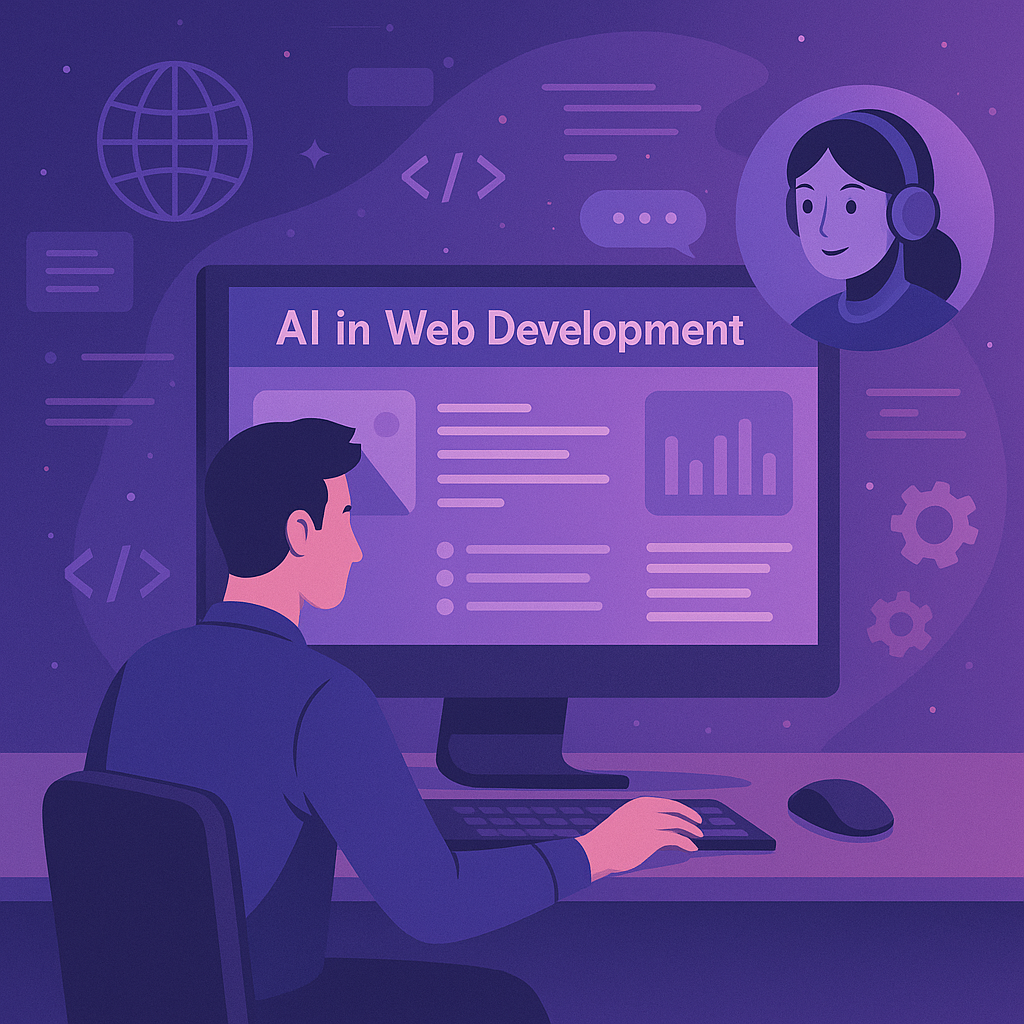AI is no longer just a buzzword in web development. It's a competitive advantage. From automating routine tasks to creating hyper-personalized user experiences, artificial intelligence is fundamentally changing how modern websites are built, optimized, and maintained.
As part of the Expert Edge series at 247 Labs, this article breaks down the most impactful ways AI is reshaping web development today and in the near future.
Why AI in Web Development Matters
The pressure on companies to deliver secure, accessible, high-performing digital experiences is higher than ever. AI addresses this challenge by:
- Automating repetitive coding, testing, and bug fixes
- Enhancing design through intelligent layout and UX suggestions
- Driving personalization by learning user behavior in real time
- Optimizing performance through predictive analytics and automated monitoring
For 247 Labs, these capabilities are directly integrated into our agile development workflows. Whether it's deploying AI-driven QA processes or using machine learning to analyze UX heatmaps, our teams use these tools to accelerate time to market while maintaining enterprise-grade quality.
7 Practical AI Use Cases in Web Development
- Personalized UX at ScaleAI tools now enable websites to respond dynamically to user behavior. From product recommendations to personalized CTAs, platforms like Dynamic Yield and Adobe Sensei allow real-time adjustments based on user profiles. This has been particularly powerful in eCommerce and content-driven platforms.
- Automated Testing and DebuggingTools like Testim and Snyk identify bugs across browsers and devices before deployment. These systems speed up QA and help reduce bounce rates. 247 Labs integrates automated testing directly into our CI/CD pipelines.
- Content Generation and SEO OptimizationAI platforms such as Jasper and SurferSEO generate on-brand copy, suggest structural edits, and optimize content for search engines. These tools cut production time and improve discoverability.
- Conversational AI and Smart ChatbotsAI-powered assistants help streamline customer support and lead qualification. With platforms like Intercom or Tidio, businesses can offer always-on engagement while lowering overhead.
- Behavioral Analytics and Smart DesignAI tools like Hotjar and Crazy Egg analyze heatmaps and user flows. Predictive insights help design conversion-friendly layouts, a tactic 247 Labs often deploys when redesigning enterprise websites.
- Performance Optimization and MaintenanceAI continuously monitors site health, load speeds, and potential downtime triggers. Netflix, for example, uses AI to adapt stream quality based on real-time conditions. Smaller businesses can implement similar strategies using platforms like Dynatrace or WP Engine.
- Fraud Detection and CybersecurityAI platforms like Cloudflare and Astra Security scan for anomalies and automate security patches. In a landscape where one breach can cost millions, preemptive AI security is no longer optional.
Common Implementation Challenges
Despite the benefits, decision-makers often hesitate due to costs, integration complexity, or data privacy concerns. Here’s how to tackle them:
- Start small: Pilot a chatbot or A/B testing AI before scaling
- Partner smartly: Use development partners familiar with both AI and custom software
- Secure your data: Choose compliant platforms and anonymize sensitive inputs
At 247 Labs, we guide clients through all these steps with tailored AI adoption roadmaps.
Key Takeaways
AI is not replacing developers, it's amplifying them. It reduces friction, drives speed, and helps build future-proof digital experiences. From healthcare platforms to finance apps, our teams at 247 Labs are using AI tools to improve quality, reduce costs, and unlock more innovation in every release.
Need help making your web development smarter and more scalable?
Reach out to 247 Labs to explore how AI can fit into your digital roadmap.


